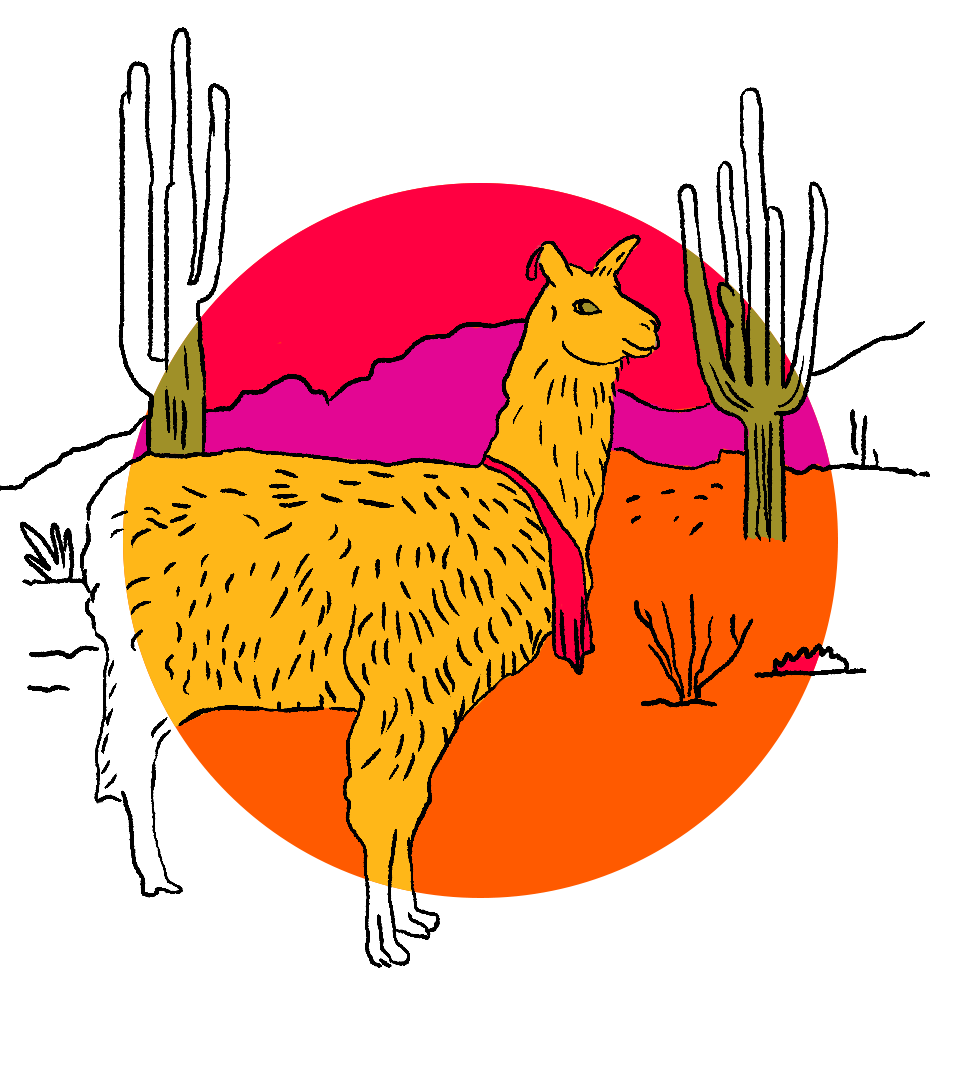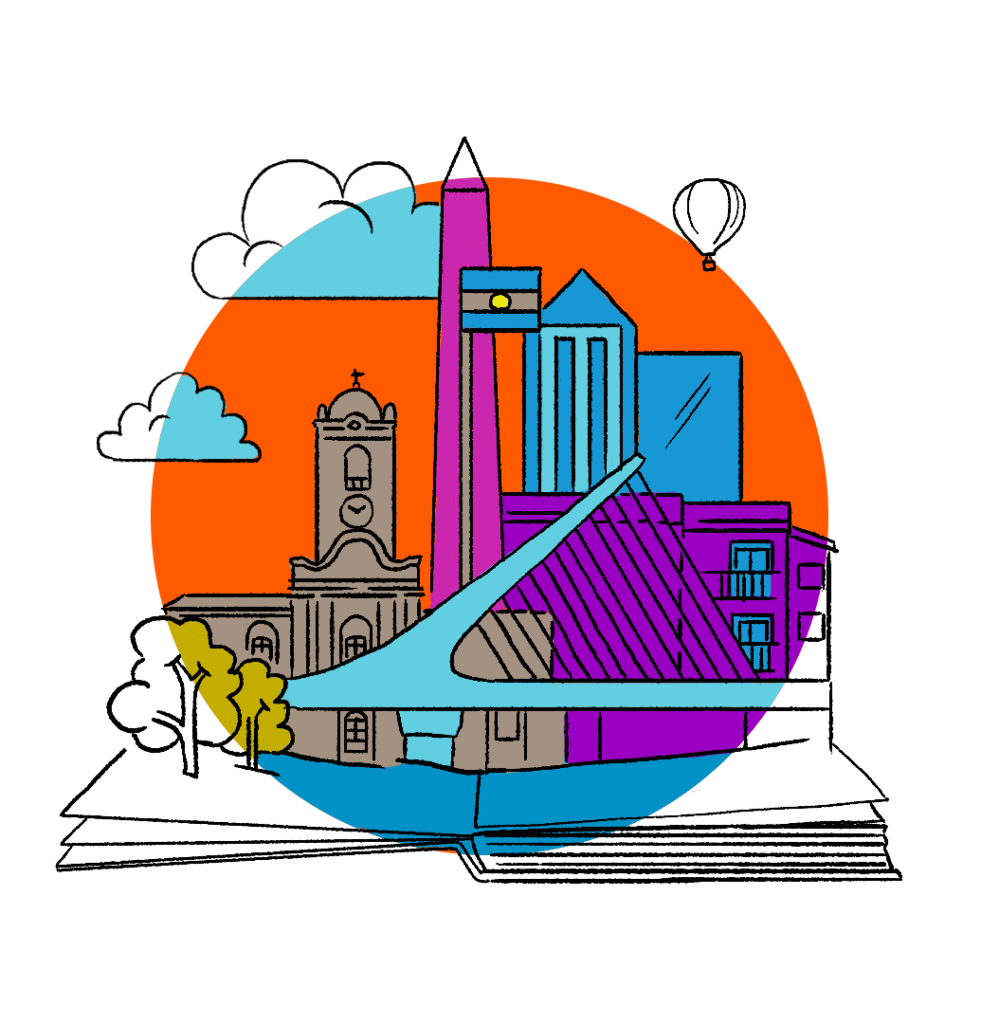In Jujuy, Argentina, an innovative social impact venture based on the ancestral art of knitting has built a business model on trust, fair trade and an inclusive system of governance in which local communities sit on the board.
A hundred years ago in Jujuy, Argentina, a visionary governor commissioned the purchase of innovative Belgian spinning machinery as part of a set of productive strategies to address poverty in Puna – a beautiful region 3,500 meters above sea level in the country’s northwest. The lack of water and energy meant the equipment was left dormant in its original container for over 30 years. In 1950, a group of Hungarian immigrants, of the textile tradition, convinced the government to move the machinery to the Puna region to put it to use giving birth to the first spinning mill endeavour, which survived with no other achievement than subsistence.
In 2013, fate brought us together with Rosario Quispe, leader of the Coya community and founder of the NGO Warmi Sayajsunqo – which in Quechua means ‘tenacious woman’. They nominated Rosario for the Nobel Peace Prize in 2005 for her work in empowering Coya women through a microfinance programme that fostered a productive cluster, promoting development and workforce. Rosario was searching for the proper investors to finance the recovery of the mythic mill, and I was strengthening the local ecosystem, looking to bring together capital with cause. This was the moment Hilandería Warmi came to life.
Purpose made its way; we created an integrated, diverse and plural board of members to weave together ancestral knowledge and contemporary frameworks. Our vision was to become the best artisan textile company in the world. In March 2014, less than six months after the foundational meeting, Hilandería Warmi was an ongoing organisation with the bigger purpose of contributing both socially and economically to the Andean communities.
Warmi products result from the respectful encounter between the identity of the local people and a global vision, targeting a sustainable luxury consumer. The value proposition includes a clothing line (ponchos and scarves) and a home decoration line (throws and blankets) made through the responsible use of 100 per cent natural fibres, such as llama fibre, cotton and wool. These products speak to a consumer who shares our values and cherishes our sustainable concept worldwide. We connect with them directly through digital channels, such as e-commerce, Instagram and Shopify. This commercial strategy has allowed us to build a global brand selling in Australia, Germany, Spain and Switzerland, with plans to expand to Chile and the US. Our digital-based commercial strategy also proved invaluable in allowing us to sustain ourselves and guarantee a steady income for local producers in the context of the COVID-19 pandemic.
We created an integrated, diverse and plural board of members to weave together ancestral knowledge and contemporary frameworks
The financial structuring was a combination of seed capital and private contributions from a group of entrepreneurs committed to triple-bottom-line (social, environmental and financial) impact investing. Hilandería Warmi has been a self-sustaining company since August 2016, when a demand order prompted us to produce 13,500 products in four months instead of 1,000 per year. Llama wool was required, and this specific endeavour increased the purchase price by 36 per cent, positioning La Hilandería as a relevant actor in the province of Jujuy for its ability to establish a fair price. This development, together with the increase in exporting capacity, enabled the relocation of the spinning mill to the community of Abra Pampa – the plateau where it was originally envisioned – making Hilandería Warmi the first company to settle there.

Despite the Argentine macroeconomic context, Hilandería Warmi is among the 10 per cent of SMEs that survive after the fifth year of life. Today, it creates genuine work for 25 employees and is a source of a fair income for 600 families that live by raising and shearing the llama raw wool. Profits go towards the consolidation of the organisation and to enhance social projects such as the Microcredit Fund of the Warmi Sayajsunqo, funding initiatives such as the startup of a cultural and rural ecotourism venture. We also allocated revenues to the launching of the first Entrepreneurial Centre, with 3D printers and computers promoting digital learning skills to members of the Coyan community.
Environmental care is essential to our philosophy, which is why we are committed to becoming zero waste.

We minimise the generation of waste and treat each waste product as an opportunity: we donate what is valuable to local co-operatives and artisans, minimise the use of water and reuse the filtered liquid effluents for intrapredial irrigation. These high standards of social, economic and environmental performance led us to get the B Corporation certification in 2019. The United States Chamber of Commerce in Argentina awarded Hilandería Warmi the Corporate Citizenship Award 2019, highlighting the New Entrepreneur Paradigm.
But every road has its stones: we had to strengthen something as basic as trust. The purchase of llama fibre at twice the market value awakened suspicion. Likewise, the financial precariousness of local producers meant greater efforts were required to include local production in our methods. And remoteness: Coyan communities are difficult to access and have scarce connectivity. Last but not least, policy incentives and trading/operating conditions are not always encouraging, and there is still work to be done on tax benefits and financing tools for micro-SMEs.
With the model in operation and generating real impact, today we can identify and share the key drivers of this impact venture:
Integration: We established a representative model that promotes community involvement. The Warmi Sayajsunqo Association is one of the 10 partners of our shareholding composition, bringing a plural and diverse governance into the strategic and decision-making process.
Purpose is the catalyst: The greater good is the DNA of a social company, so you need an extremely committed and passionate team. Purpose nourishes the daily, and the work must be transformative and inspirational for the stakeholders, community and people involved.
Leadership: Money and technology are not enough if there is no leadership capable of assuming the purpose and building the confidence of the team to achieve the vision.

I am convinced that this is the century of Latin America. The most interesting creative projects of scale are arising here. It is about time for us to connect this creative capital with serious possibilities. And when this happens, the transformation will be unstoppable.








